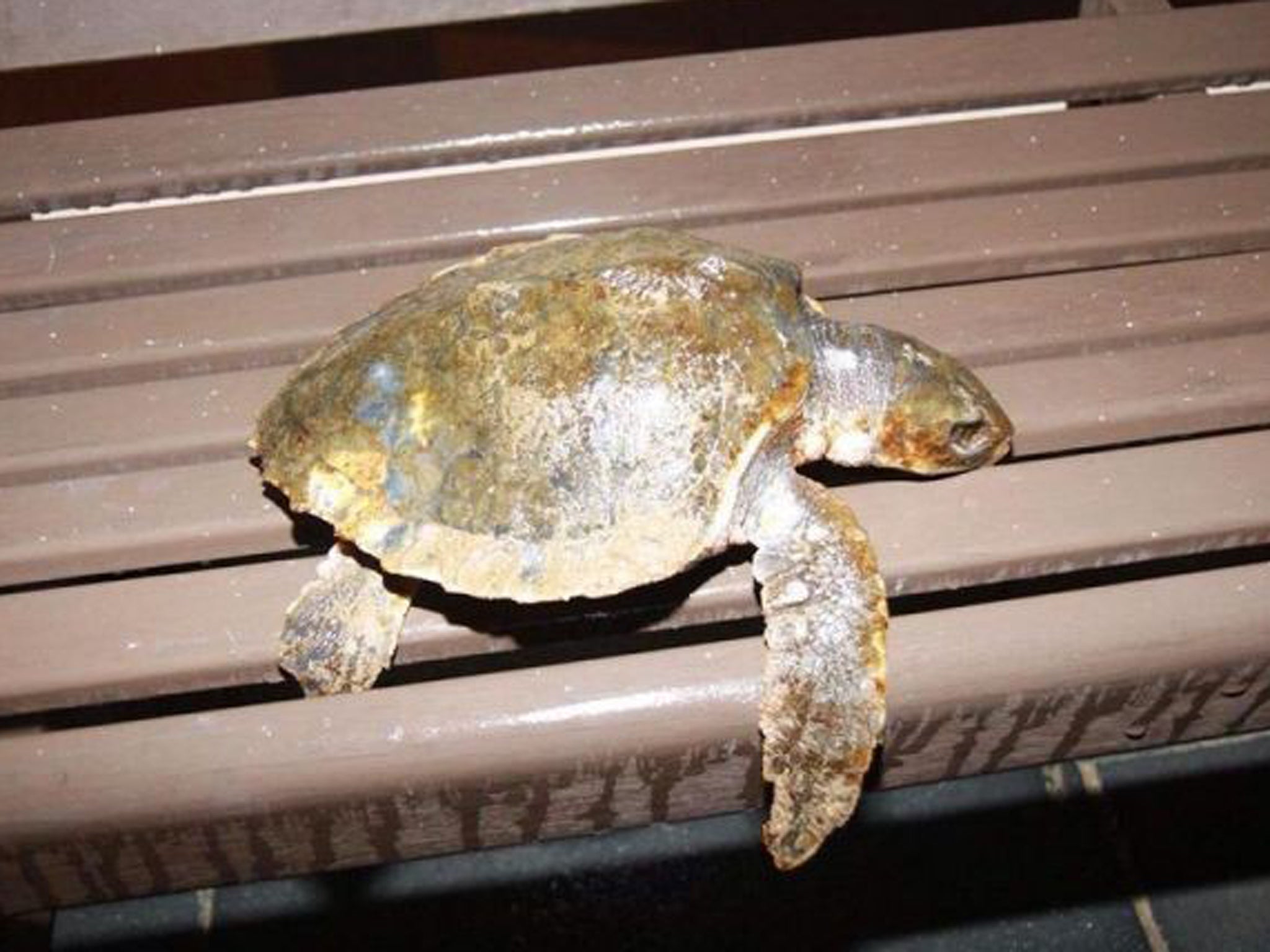Rare Atlantic turtle discovered on Devon beach
The warm water reptile was found dead on the sand

Your support helps us to tell the story
From reproductive rights to climate change to Big Tech, The Independent is on the ground when the story is developing. Whether it's investigating the financials of Elon Musk's pro-Trump PAC or producing our latest documentary, 'The A Word', which shines a light on the American women fighting for reproductive rights, we know how important it is to parse out the facts from the messaging.
At such a critical moment in US history, we need reporters on the ground. Your donation allows us to keep sending journalists to speak to both sides of the story.
The Independent is trusted by Americans across the entire political spectrum. And unlike many other quality news outlets, we choose not to lock Americans out of our reporting and analysis with paywalls. We believe quality journalism should be available to everyone, paid for by those who can afford it.
Your support makes all the difference.A rare warm water turtle washed up on a beach in Devon this week – but the reptile had already died.
The Kemp’s ridley turtle, measuring just 30cm in length, was found on Woolacombe Beach.
Experts said it is not the first Kemp’s ridley to be cast ashore along the UK coastline this winter.
The species was on the brink of extinction in the 1980s, as a result of hunting and egg collection in the nesting beaches in Mexico and accidental capture and drowning in trawling nets in the Gulf.
But the species is now recovering after special measures were put in place to safeguard their numbers.
Dr Peter Richardson, biodiversity programme manager for the Marine Conservation Society (MCS), said the turtles would not survive in British waters.
"We ask people to keep their eyes peeled for stranded turtles during this stormy weather," Dr Richardson said.
"Sometimes freshly stranded turtles can appear dead, but may still be alive and can be rescued. They should not be put back in the sea, as this will definitely kill them.
"Instead, they should be moved away from the water to a sheltered place, preferably in a cardboard box out of draughts, and reported to experts for collection.
"Even if they are obviously dead they should be reported as they can be used for post-mortem research."
Two weeks ago, a Kemp’s ridley washed up alive in south west Wales but perished shortly after.
Additional turtle deaths were reported in Worthing, where the remains of a young loggerhead were found, while MCS has also received reports of leatherback turtles’ remains on Chesil beach, near Weymouth and Tregantle beach in Cornwall.
In the 1980s, only a few hundred Kemp’s ridleys were recorded emerging at the main nesting beaches.
In the interim, strict protection measures have been enforced on the beaches and there has been an increased use of special turtle excluder devices in the Gulf of Mexico shrimp nets.
As a result, there are now thousands of females emerging to nest each year.
Anyone who finds a stranded or dead turtle on the beach is asked to report it to the Cetacean Strandings Investigation Programme on 0800 6520333.
Additional reporting by Press Association
Join our commenting forum
Join thought-provoking conversations, follow other Independent readers and see their replies
Comments